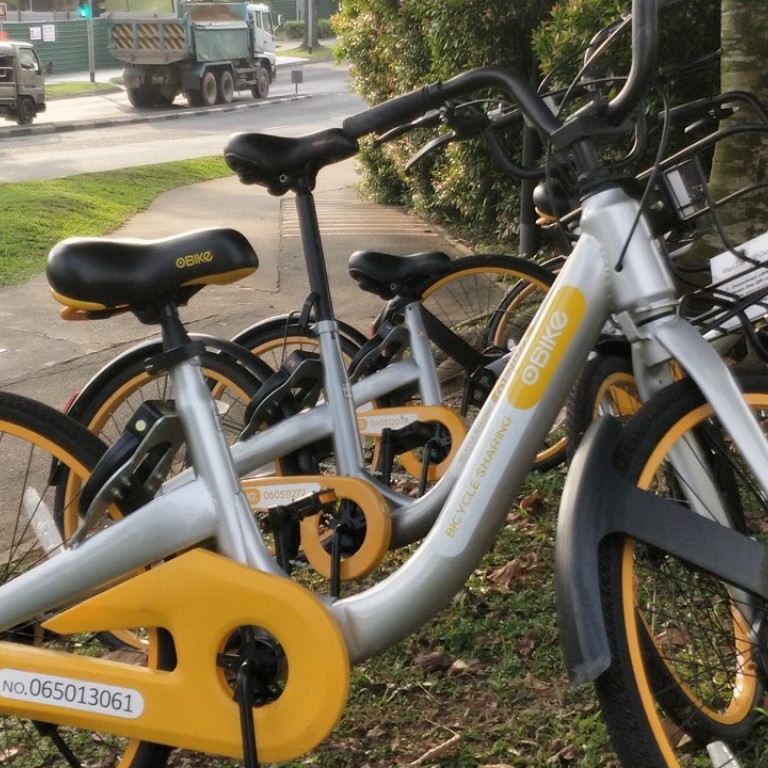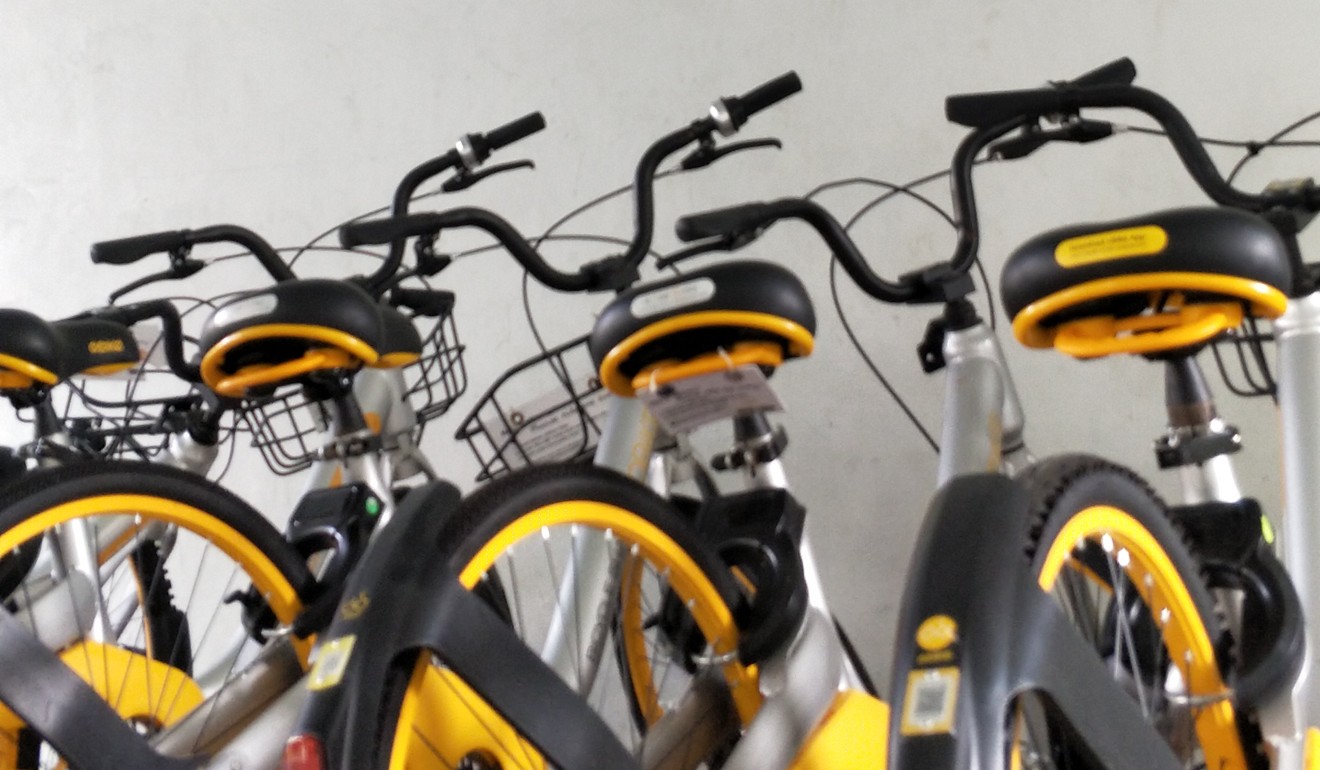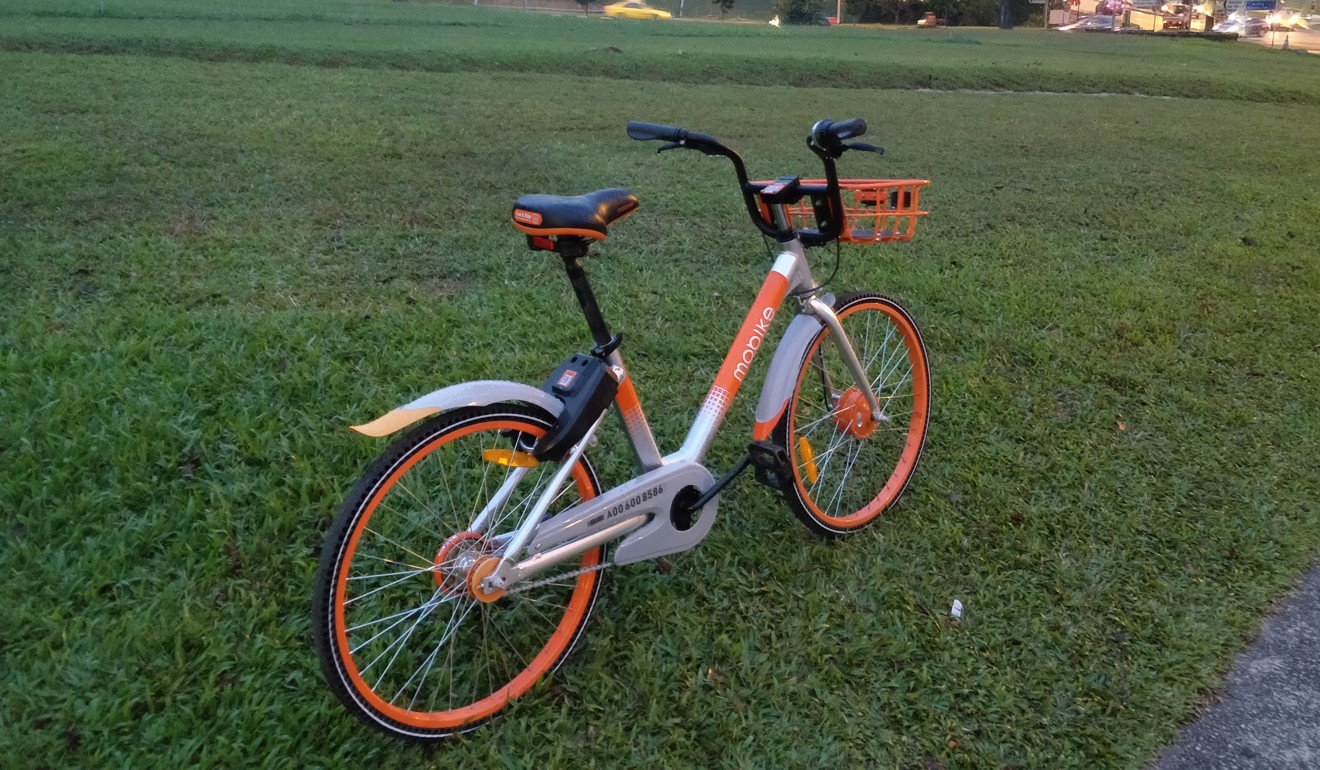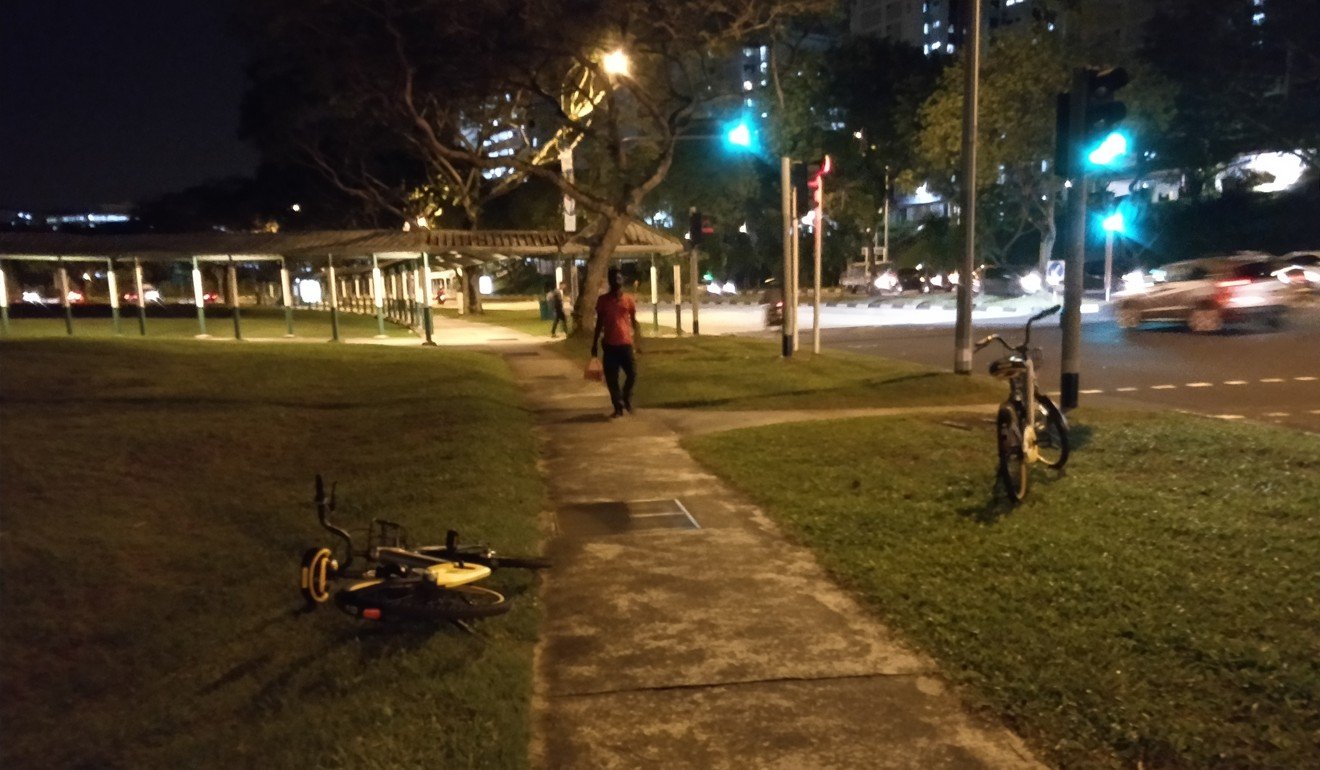
Why so many Singaporeans see bike sharing as a menace
The Lion City’s shared bike scheme has made life easier for thousands of residents, but many say the ‘dockless’ cycles are clogging up walkways and public spaces
Home – located on the island’s western district of Jurong – is a 40-minute metro commute away, but the trip is less grinding for Taufiq these days as he zips to the nearest station on one of the city’s newly launched shared bicycles.
This allows him to save precious minutes spent on a winding feeder bus that previously took him to the metro stop from his factory.
As he approaches a sheltered walkway metres from the Woodlands station, Taufiq stops, and manually locks his “oBike”.

There is no parking station nearby – he leaves it leaned against one of the walkway’s pillars, and walks briskly towards the station.
Approached by This Week in Asia, the father-of-two chuckles loudly when asked if shared bicycle users like him were cluttering public spaces with their haphazard parking habits.
“It’s not so bad, lah. I leave it here, someone will pick it up very soon,” Taufiq says.
Not all Singaporeans are as lackadaisical about the rising public clutter caused by the explosion in “dockless” bike usage, however.
Why Singapore’s economic slowdown may be coming to an end
Just months after entering the Singapore market, oBike, a local start-up, along with China’s Ofo and Mobike have flooded the Lion City with nearly 30,000 bicycles that can be located, unlocked and paid for using smartphones.
The two Chinese firms are market leaders in the mainland’s dockless bike sharing space, where millions of two wheelers are in service for as little as one yuan (US$0.14) per hour.
Unlike traditional bike sharing schemes in places like London and New York, the traceable bikes do not need to be returned to docks.
Users have hailed the entry of the scheme for bridging the so-called “first and last mile” of their commute, but the rampant haphazard parking has not sat well with many in the city state – world famous for its finicky attitude towards cleanliness and public order.
“I will say it’s a menace ... if you leave it like this it’s going to make Singapore like one of those Chinese cities where bicycles are lying around everywhere,” said an office worker who gave his name as Alan.
He spoke to This Week in Asia while smoking a cigarette next to an oBike two wheeler on a pavement in Raffles Place, the heart of the Lion City’s business district.

In the residential suburb of Lakeside, an elderly ethnic Chinese woman said the bicycles were becoming an eyesore for her during her daily visits to the market. “They think this [pavement] belongs to them. You must catch them and fine them.”
The scornful attitude towards the scheme reflects “how this city views and carefully manages its urban environment”, said Lee Der-Horng, an urban transport researcher at the National University of Singapore.
Amazon Prime Now: Can Singapore deliver?
Lee said those opposed to the reckless parking of bicycles saw the new trend as equivalent to the nuisance caused by chewing gum in the 1990s.
The Singapore government maintains a ban on the sale of chewing gum first imposed in 1992, after rampant gum litter.
Over the years, officials have dismissed criticism over the ban. They point to such intrusive laws as a key reason for the country’s reputation as one of the world’s cleanest cities.
“The bike-sharing trend is repeating the history of the gum nuisance, but ironically, the government has been taking some very mild attitude on this,” Lee said.
After an initial light touch regulatory approach when the three companies launched their services early this year, the government now says it will clamp down hard on firms that have two wheelers indiscriminately parked.

“If the indiscriminately parked bicycles are not removed within half a day, the Land Transport Authority will impound them, levy a fee on the bicycle-sharing companies for the resources used for the impounding, and fine the companies,” Lam Pin Min, a junior transport minister, told parliament on July 3 after facing questions on the matter from lawmakers. “It is in their interest to cooperate with the authorities. Any public backlash may make the business model unsustainable,”
The minister said authorities had served 1,000 notices for indiscriminately parked bicycles since the start of the year, of which 200 were impounded.
The government is planning to add 6,000 new bicycle parking lots in metro stations, with 500 more in the city centre, he said.
The three privately held companies have said they are working closely with municipal authorities in the compact island to end the errant parking scourge.
Tiny Singapore is just one part of the three companies’ plans for global domination in the dockless bicycle space. Ofo, launched by Peking University students in 2014, plans to deploy 20 million bikes to 200 cities in 20 countries by the end of 2017. The company this month said it raised more than US$700 million in its latest funding round, led by Alibaba – the owner of the South China Morning Post. Mobike, backed by private equity from the likes of Singaporean sovereign wealth fund Temasek Holdings, Chinese internet firm Tencent and manufacturing giant Foxxconn, last month launched operations in Manchester – its first overseas venture outside Asia.
Singapore-based oBike, which has Singaporean and mainland Chinese investors, meanwhile has launched trials in Melbourne and London.
Taufiq, who has been using the bicycles for two months, said he hoped the public backlash would not force the firms out of the Lion City. “If you [create] more parking, the riders will use it ... don’t need to fine, ban [and] jail and all that. Give it some time.” ■

